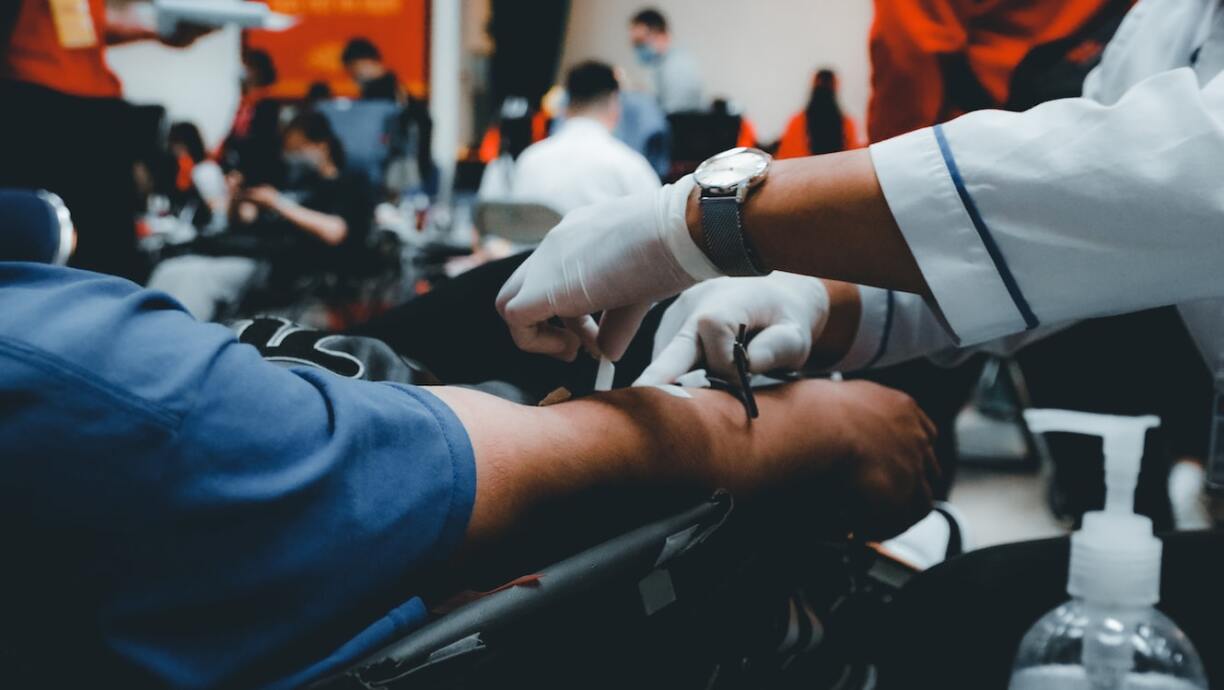
In the first week of January, Luxembourg’s Red Cross was in urgent need of blood donations. Before that, an emergency appeal was made in August 2022 when estimated stocks would only have been able to supply Luxembourg’s hospitals for one more week.
It’s not just the Grand Duchy, as news has been overflowing lately with countries being in need of blood donations.
In Germany, 15,000 donations are needed per day, which translates into 11 donations per minute. Yet only 3% of Germans are actively donating their blood.
But going through the comment section under our article from early January, you can see that at least in this case, it’s not about people not wanting to donate blood, but rather about people not being able to.
One commenter said that he would happily donate blood, and does so willingly in the UK like millions of others without ever infecting anyone, but cannot in Luxembourg “due the outdated and discriminatory rule”.
By this, the commenter is referring to the fact that he, and many other Britons cannot donate blood in Luxembourg (and Europe) due to the fact they lived across the Channel when the Isles were plagued by ‘Mad Cow Disease’.
Thirty years later, they are still not allowed to donate their blood. A lot are calling for an end to this “pointless and provocative rule.”
Another pointless and provocative rule is that men having sex with other men (MSM) are not allowed to donate. Same for women who have had sex with a MSM.
Since January 2021, Luxembourg accepts every donor and does not discriminate against sexual orientation, If the male donor is not a MSM for the last 12 months, or a female donor who had intercourse with a MSM for the last 12 months.
Still sounds a lot like prejudice if you ask me. Heterosexual couples also have a risk of infecting eachother with sexually transmitted diseases don’t they?
What is interesting though, is that countries do not have universal rules when it comes to blood donation.
Some countries allow MSM to donate after three, four or six months of ‘abstinence’. Some countries allow for tattooed people to donate after four months, some need to wait up to 12 months.
Cristiano Ronaldo might be the most famous advocate for donating blood. It’s no secret that the football player sports no tattoos since they would prevent him from donating blood.
In Luxembourg you have to stop donating blood when you reach the age of 60. In Germany it stops at 68, or 75 if you are someone who donates blood frequently. That’s a 15 year difference!
British people have donated healthy blood for years in their home country, but crossing a body of water makes it somehow less healthy?
Instead of putting the burden of precaution on the donor’s side, would it not be beneficial to come up with an aftercare system for the receivers? It would shorten restriction time and take away some of the responsibility from the donor.
Ronaldo could finally get his tattoo and look like his colleagues who are covered in them. But jokes aside - I am sure that most receivers would not mind, considering it’s literally a choice between life and death.
If anything, this shows that a lot of these restrictions are arbitrary and that it might be time to take a closer look and change some things up.